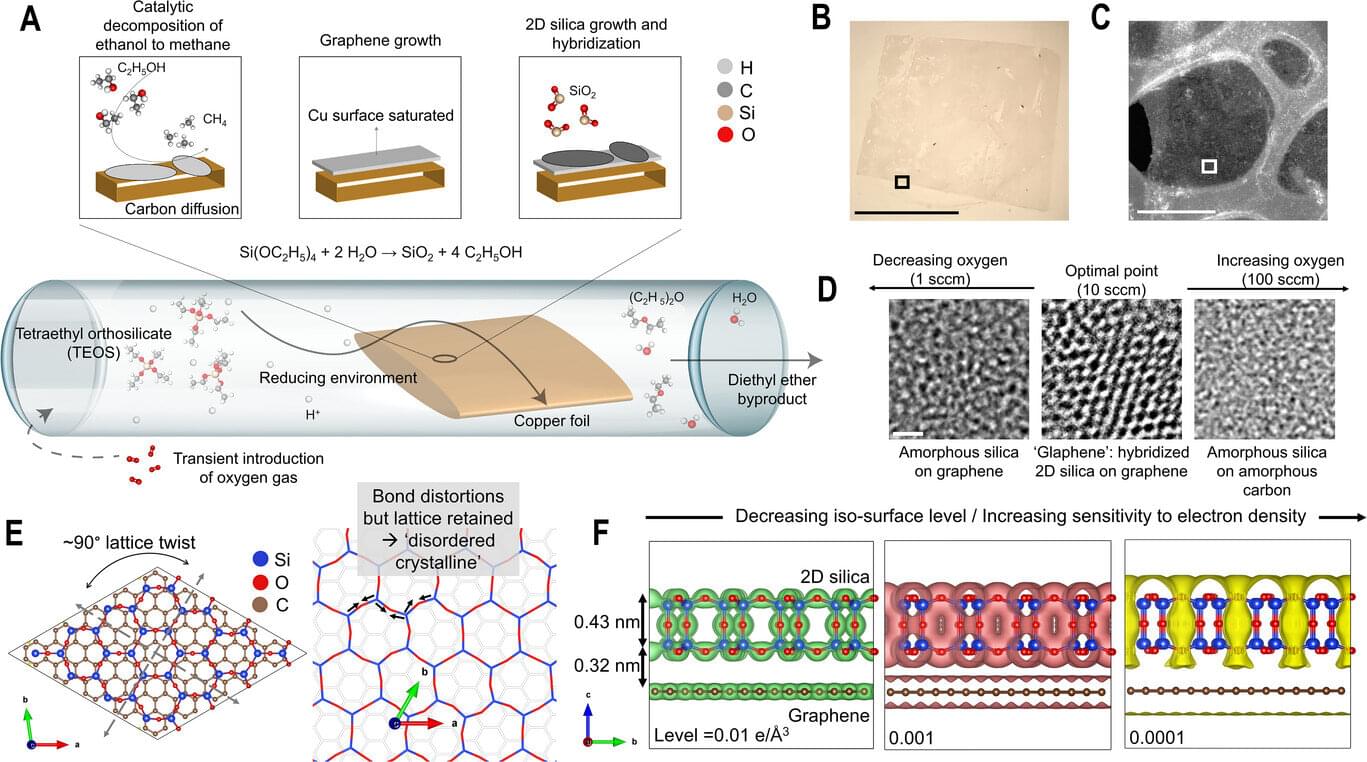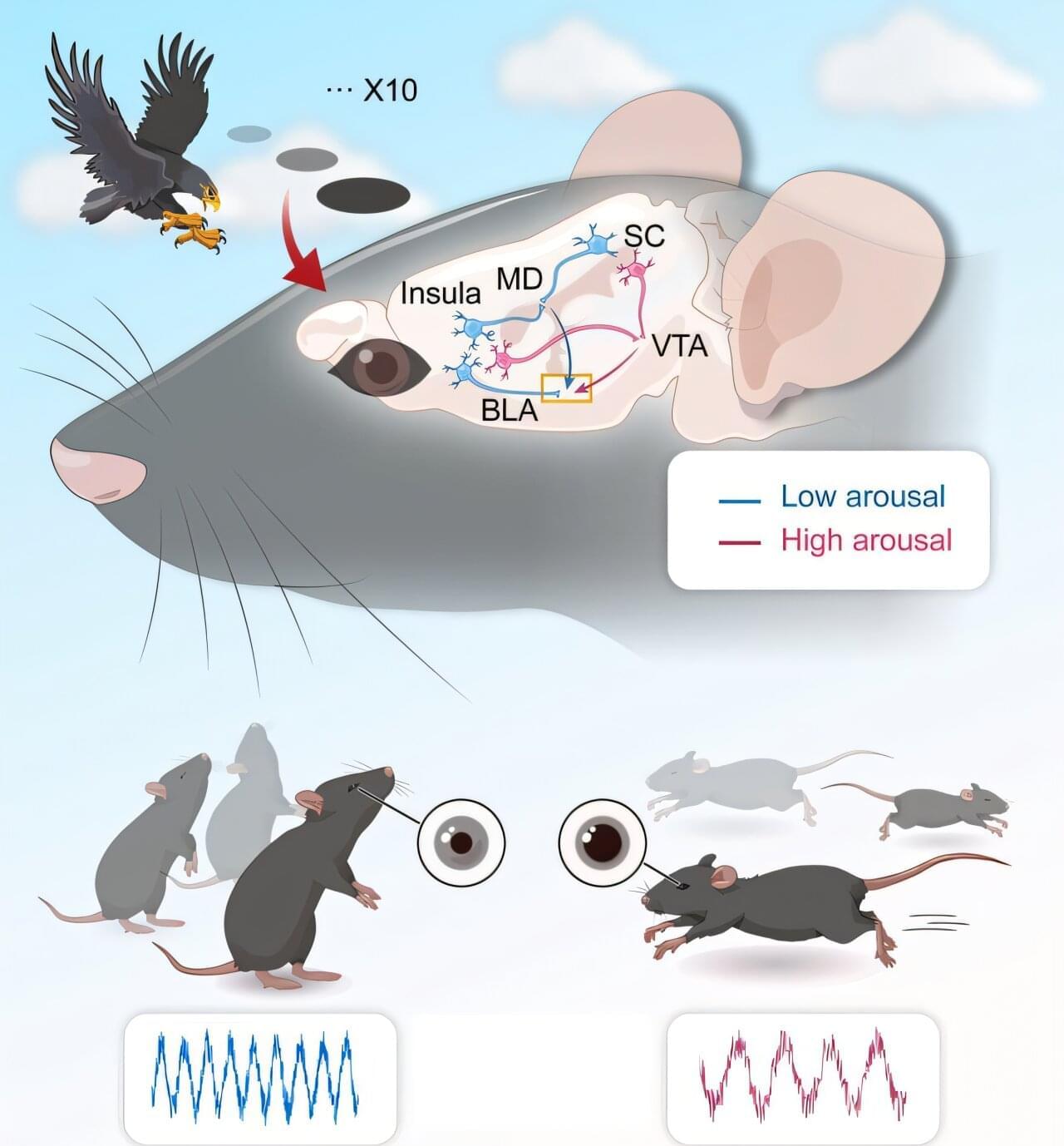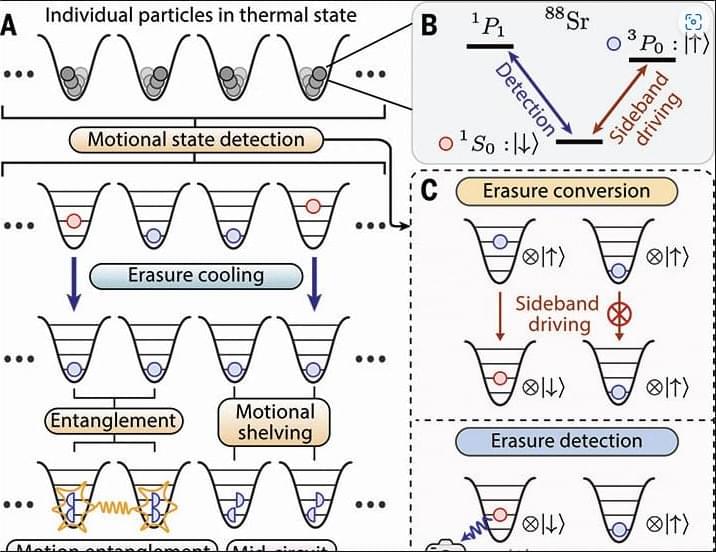New techniques for producing large numbers of cardiac spheroids and organoids could help speed heart-related regenerative medicine.



Some of the most promising materials for future technologies come in layers just one atom thick, such as graphene, a sheet of carbon atoms arranged in a hexagonal lattice, prized for its exceptional strength and conductivity. While hundreds of such materials exist, truly merging them into something new has remained a challenge. Most efforts simply stack these atom-thin sheets like a deck of cards, but the layers typically lack significant interaction between them.
An international team of researchers led by Rice University materials scientists has succeeded in creating a genuine 2D hybrid by chemically integrating two fundamentally different 2D materials—graphene and silica glass —into a single, stable compound called glaphene, according to a study published in Advanced Materials.
“The layers do not just rest on each other; electrons move and form new interactions and vibration states, giving rise to properties neither material has on its own,” said Sathvik Iyengar, a doctoral student at Rice and a first author on the study.

Bike locks or lightweight armour that cannot be cut by any tool, even angle grinders or high-pressure water jets, sound like an unattainable dream.
They could be remarkably close, however, thanks to a new ‘non-cuttable’ material developed by engineers at Durham University and the Fraunhofer Institute in Germany.
Researchers took inspiration from shells to create the strong and lightweight material, named Proteus after the shape-changing mythical god. Another unusual inspiration was grapefruit, which have very high impact resistance – when dropped from a height, for example – with very lightweight peel.
The material resists cutting by turning the force of a cutting tool back on itself. It is made of ceramic spheres encased in a cellular aluminium structure, similar to the organic tiles interlinked by biopolymers in abalone sea creatures.
Cookies are used to store and retrieve information from your browser. It may be about you or your device and is mostly used to make the site work as you expect, but also to tailor your experience on this and other sites.

In a study published in Neuron, a research team led by Prof. Wang Liping from the Shenzhen Institutes of Advanced Technology (SIAT) of the Chinese Academy of Sciences revealed the neural circuit underlying individual differences in visual escape habituation.
Emotional responses, such as fear behaviors, are evolutionarily conserved mechanisms that enable organisms to detect and avoid danger, ensuring survival. Since Darwin’s “On the Origin of Species” (1859) proposed that individual differences drive natural selection, understanding behavioral adaptation has become essential for unraveling biodiversity and survival strategies.
Repeated exposure to predators can elicit divergent coping strategies—habituation or sensitization—that are dependent on sensory inputs, internal physiological states, and prior experiences. However, the neural circuits underlying individual variability in the regulation of internal states and habituation to repeated threats remain poorly understood.





A US startup is looking to our closest satellite to fill a resources gap here on Earth. Helium-3 is rare on terra firma, but is thought to be abundant in the regolith of the Moon. Interlune has now revealed a full-scale excavator prototype that forms a key component of its lunar Harvester.
The shortage of helium-3 – a stable isotope of helium important for applications ranging from energy production to medical research – was first identified in the US toward the middle of 2008. The US government officially recognized the issue in early 2009, and mitigation efforts put in place.
“The United States supply of 3He comes from the decay of tritium (3H), which the Nation had in large quantities because of our nuclear weapons complex; however, the tritium stockpile has declined in recent years through radioactive decay and is expected to decline in the future because of reduced demand for tritium,” read the intro to a National Isotope Development Center newsletter from 2014.
